What to Expect at Court
When relationships break down and people start talking about going to court they generally mean the Family Courts. When it comes to the kids, the Courts help to make decisions when parents can't agree. These decisions are called parenting orders. The Courts always decide what parenting orders to make on the basis of what is in the best interests of the child.
On this page you will find helpful information about who's who at the Family Courts and how family law matters are generally dealt with.
Who is who in the Family Courts. Click on a person to see more information.
Click on a person to see more information about their role in Court
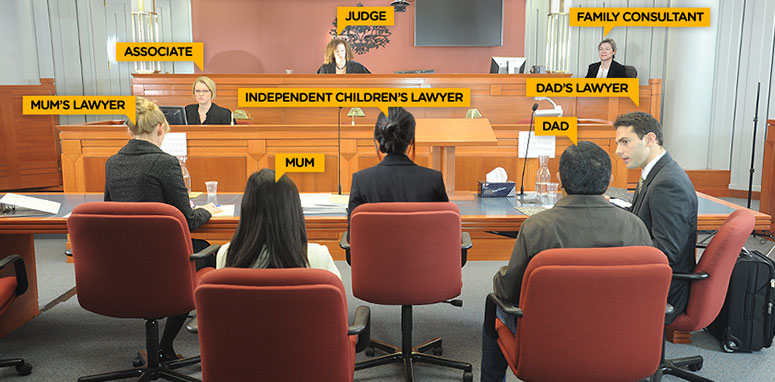
Mum's Lawyer

You can get free family law advice from Legal Aid. To make an appointment call your nearest Legal Aid office.
If you need more than legal advice, Legal Aid may provide a lawyer to help with your case. This is called being granted legal aid. If you are granted legal aid, you may be helped by a legal aid lawyer or, in some cases, a private lawyer. They should provide you with information and advice about your case, prepare your court documents, assist in negotiations and represent you in court. Your lawyer (or you, if you do not have a lawyer) outlines your case in court. The other party (or their lawyer) may cross-examine you or your witnesses.
Associate
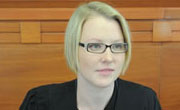
Associates provide legal research, in-court assistance and other support for the Judge or Federal Magistrate that hears your case.
Mum
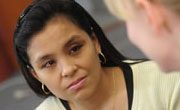
In the Courtroom, Mum sits behind her solicitor at the bar table. The lawyer speaks on Mum's behalf unless the Judge or Federal Magistrate asks her a question directly.
Judge
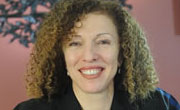
If your matter isn't resolved at mediation, a Judge will hear your case in a Courtroom. The main concern of the Judge will be what is best for any children involved in a case.
The Judge can also ask for an Independent Children's Lawyer to be appointed for the kids and for a Family Consultant to assist.
Independent Children's Lawyer
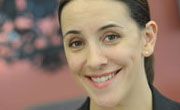
In family law cases, children never go to court but in difficult cases, the Court will appoint an Independent Children's Lawyer to represent the children. Their job is to make sure that the Court has all the information it needs to make a decision in the best interests of the children.
Dad
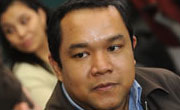
In the Courtroom, Dad sits behind his lawyer at the bar table. The lawyer speaks on Dad's behalf unless the Judge or Federal Magistrate asks him a question directly.
Dad's Lawyer

You can get free family law advice from Legal Aid. To make an appointment call your nearest Legal Aid office.
If you need more than legal advice, Legal Aid may provide a lawyer to help with your case. This is called being granted legal aid. If you are granted legal aid, you may be helped by a legal aid lawyer or, in some cases, a private lawyer. They should provide you with information and advice about your case, prepare your court documents, assist in negotiations and represent you in court. Your lawyer (or you, if you do not have a lawyer) outlines your case in court. The other party (or their lawyer) may cross-examine you or your witnesses.
Family Consultant
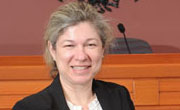
Family consultants are psychologists and/or social workers who specialise in child and family issues after separation and divorce. Their role is to:
- help you and the other party resolve your dispute
- assist and advise the Courts and give evidence about your case
- write and provide a report to the Courts about your family, and
- advise the Courts about the services provided to families by government, community and other agencies.
In the Courtroom, Dad sits behind his lawyer at the bar table. The lawyer speaks on Dad's behalf unless the Judge or Federal Magistrate asks him a question directly.
You can get free family law advice from Legal Aid. To make an appointment call your nearest Legal Aid office.
If you need more than legal advice, Legal Aid may provide a lawyer to help with your case. This is called being granted legal aid. If you are granted legal aid, you may be helped by a legal aid lawyer or, in some cases, a private lawyer. They should provide you with information and advice about your case, prepare your court documents, assist in negotiations and represent you in court. Your lawyer (or you, if you do not have a lawyer) outlines your case in court. The other party (or their lawyer) may cross-examine you or your witnesses.
In the Courtroom, Mum sits behind her solicitor at the bar table. The lawyer speaks on Mum's behalf unless the Judge or Federal Magistrate asks her a question directly.
You can get free family law advice from Legal Aid. To make an appointment call your nearest Legal Aid office.
If you need more than legal advice, Legal Aid may provide a lawyer to help with your case. This is called being granted legal aid. If you are granted legal aid, you may be helped by a legal aid lawyer or, in some cases, a private lawyer. They should provide you with information and advice about your case, prepare your court documents, assist in negotiations and represent you in court. Your lawyer (or you, if you do not have a lawyer) outlines your case in court. The other party (or their lawyer) may cross-examine you or your witnesses.
In family court cases, children never go to court but in difficult cases, the Court will appoint an Independent Children's Lawyer to represent the children. Their job is to make sure that the Court has all the information it needs to make a decision in the best interests of the children.
If your matter isn't resolved at mediation, a Judge will hear your case in a Courtroom. The main concern of the Judge will be what is best for any children involved in a case.
The Judge can also ask for an Independent Children's Lawyer to be appointed for the kids and for a Family Consultant to assist.
Associates provide legal research, in-court assistance and other support for the Judge or Federal Magistrate that hears your case.
Family consultants are psychologists and/or social workers who specialise in child and family issues after separation and divorce. Their role is to:
- help you and the other party resolve your dispute
- assist and advise the Courts and give evidence about your case
- write and provide a report to the Courts about your family, and
- advise the Courts about the services provided to families by government, community and other agencies.
Helpful Links
- Family Law Courts provides information about how the Court decides parenting matters.
- Legal Aid NSW has helpful information on how to apply for legal aid.
- Parenting plans and consent orders has information from the Family Court.
- What happens if we cannot agree? This link is about your options if you cannot reach an agreement in meditation.
- Family Consultants is a fact sheet which explains the role of family consultants in cases about children. Also see the Frequently Asked Questions factsheet.
- Federal Circuit Court information on Child Dispute Services – a specialist area in which family consultants and other experts provide assessments and advice to judges in family law matters involving separation and divorce.
- Information about going to court in the Federal Circuit Court, including tips for your hearing, and advice about appearing in court for the first time for self-represented parties (those without a lawyer representing them).
- Deciding whether you should help with supervision: Information for those considering becoming a third-party supervisor of parent-child contact.
- Information about Children’s Contact Services: an Australian government-funded service that ensures safe transfer of children between parents where there is conflict or concerns about violence.
Useful Publications
- Independent Children's Lawyer - for parents explains the role of the Independent Children's lawyer.
- Is a Family Report being prepared in your matter? Everything you need to know about a family report.
- Complying with orders about children covers what happens when you think a parenting order is not being complied with.
Other Videos & Resources
- A guide to the courtroom and court etiquette for people involved in legal disputes in the Federal Circuit Court of Australia and Family Court of Australia.
